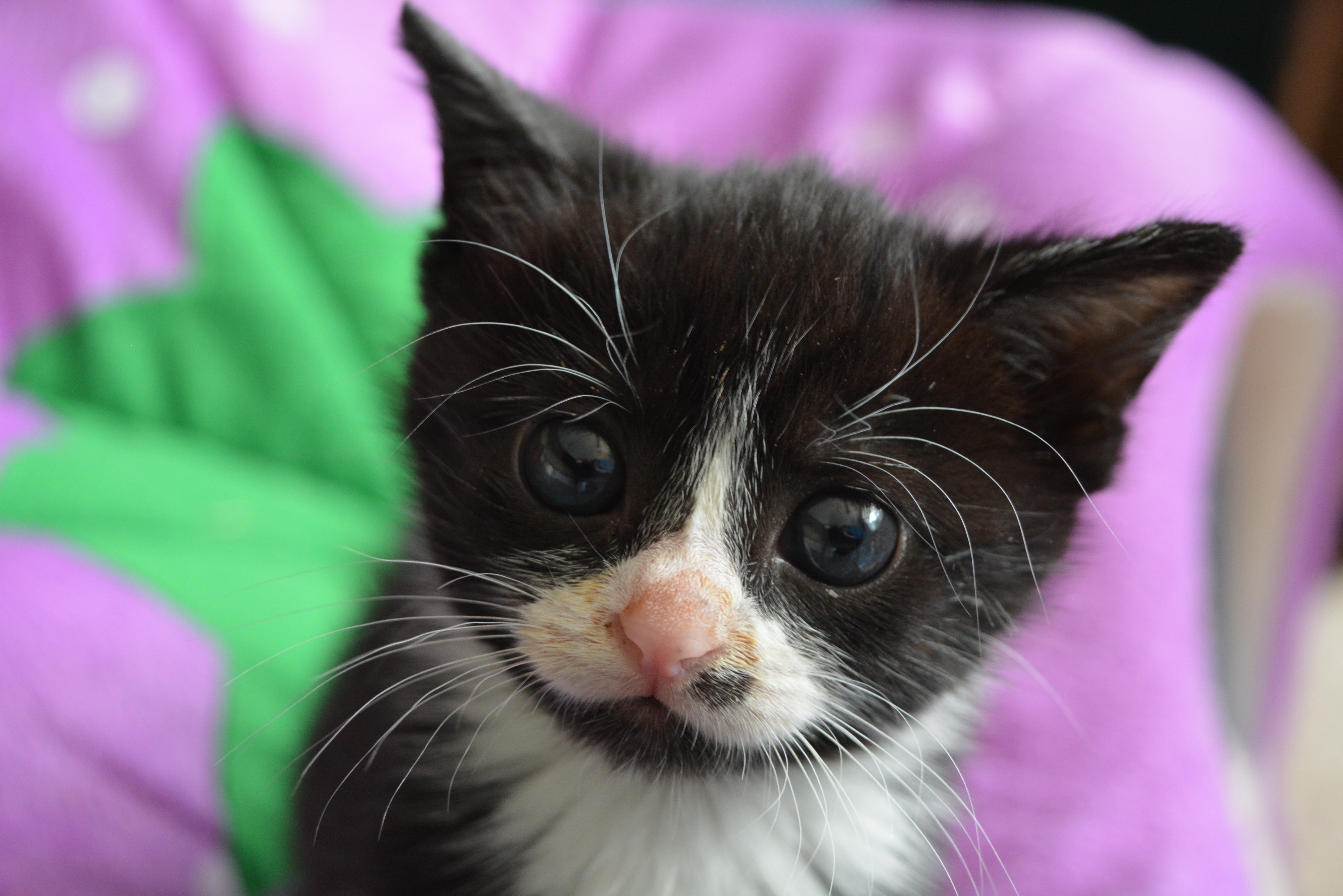Always there in a kitten crisis

Despite the ever-increasing number of kittens needing our care, our doors are always open to them…
Few sounds tug as hard at the heartstrings as the mewing of an abandoned kitten, and it’s a sound that we are no strangers to.
Tiny kitten Squirrel was just three weeks old when she arrived at our Torbay rehoming centre in Devon in a bucket filled with hay.
She had been found at the edge a farm and there was no sign of her mum or any siblings. The poor little thing was all alone. Although she was in good health, Squirrel needed constant attention because of her young age but we stepped in to fill her missing mother’s shoes.
Animal Welfare Assistant, Jo Dempsey, says: “Over the next five days our team at Torbay took it in turns to take Squirrel home and feed her throughout the night.
“Once she began putting on weight and feeding well she went off to her foster home.”
During her time with a Blue Cross pet foster carer, Squirrel received regular vet checks and vital socialisation. Hand reared kittens can be at a disadvantage socially and developmentally if they don’t have their mothers or siblings to learn normal cat behaviour from, so we make every effort to keep them with their siblings or even to place them with a willing surrogate mother.
If this is not possible, our fosterers introduce them to different noises, sights and experiences within the household so they develop into well-adjusted adult cats.
Squirrel soon became a confident kitten and it wasn’t long before she left our care for a new life as a much-loved pet.
Had we not stepped in to help Squirrel when we did, it’s unlikely she would have had her happy ending.
Desperate measures
When two tiny kittens suddenly became very poorly and weak overnight, their owner brought them straight to our Merton animal hospital in south London.
The tabby kitten was collapsed and barely responsive, while his grey and white sister was a little brighter. Their mother only had two teats with milk, so it was likely that they were weak from hunger.
Race against time
Emmeline Macedo, Deputy Nurse Manager, says: “Our vet rushed them into the treatment room where they had blood samples to try to find out the cause of the collapse. Were they anaemic? As they both had fleas, they could have become anaemic from losing too much blood to flea bites. Or did they have low blood sugar?”
Tests confirmed the tabby kitten did have dangerously low blood sugar.
He needed glucose and fluids injected straight into his tiny vein, and we placed him on a warm air blanket to gently bring his temperature up to normal.
Our nurses monitored him constantly; checking his temperature, blood pressure, heart and breathing rates.
Before long he was able to sit up and take a little milk. He also became much more demanding as he got his strength back!
Our team explained the situation to the kittens’ owner. They would need to be hand-reared until they could be weaned in a few weeks’ time, and that meant feeding every two to three hours around the clock.
The owner was not able to do this, so agreed to sign them over to our care. She also agreed to get the mother cat and another male cat neutered to prevent this from happening again.
The kittens were transferred to our Victoria hospital in central London, where the nursing team continued to give them the 24-hour care they needed.
Tragically, the grey and white kitten, who we discovered had neurological problems, went rapidly downhill and didn’t make it. This was deeply upsetting for our team, who had worked so hard to give the kittens everything they needed, and we hoped that her brother would be ok.
Thankfully, he turned a corner and began to grow stronger. We named him Tabby, and once he was old enough and well enough, he was taken to our Lewknor rehoming centre and soon found a loving home.
Emmeline explains: “When people allow their pets to breed, they often do not think of the consequences if there is a problem, which are costly and heartbreaking.”
We advise cat owners to neuter their pets to prevent unwanted litters and the heartache of pregnancy and birth going wrong, but when things take a turn for the worse, we do what’s needed to help.


